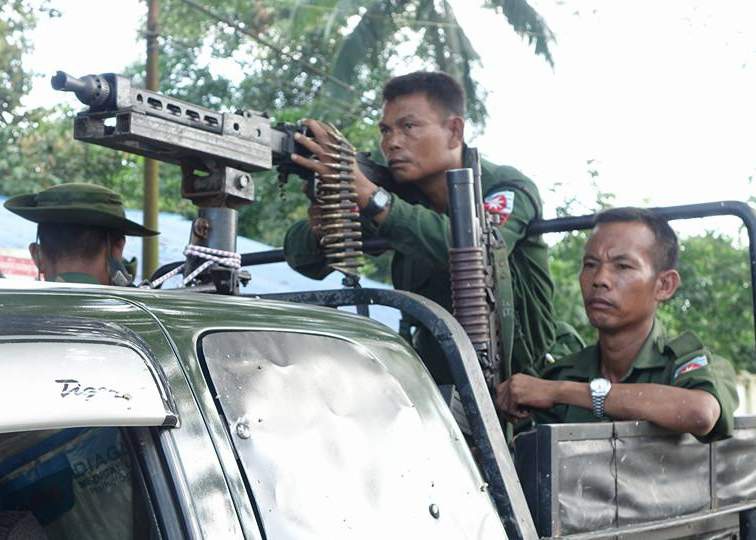A group of parliamentarians from member states of the Association of Southeast Asian Nations (ASEAN) are calling on Burma’s government to investigate alleged abuses in northern Arakan State as a military lockdown in the region continues in the wake of a series of attacks on border police early last month.
In a statement released on Tuesday, the intergovernmental ASEAN Parliamentarians for Human Rights (APHR) urged Aung San Suu Kyi, the de facto leader of the ruling National League for Democracy (NLD) government, to address concerns about the treatment of Rohingya Muslim villagers amid reports of abuses by security forces.
“We understand the huge pressures and sensitivity surrounding the issues in Rakhine [Arakan] State and the institutional separation of powers between the military and civilian leadership, but we implore the Nobel laureate and her government to prioritize efforts to address this situation and its root causes before it’s too late,” APHR Chairperson Charles Santiago said in the statement.
The Malaysian MP also called on the United Nations and ASEAN to take a leading role in conducting an investigation into alleged abuses.
“If the Myanmar [Burmese] government is incapable of preventing further bloodshed or controlling its security forces, then it is the responsibility of the regional and international community to act.
“The United Nations, as well as ASEAN, should step in to lead an investigation.”
Meanwhile, Burma’s military on Tuesday continued to issue blanket denials of abuses, saying it had “refuted the fabrications of the Bangkok Post” and other news outlets that have reported allegations of rape, summary executions and the burning of Rohingya villages.
[related]
On Tuesday, state media reported that security forces had arrested 14 people “armed with wooden clubs and machetes” in the village of Myazin in northern Arakan’s Maungdaw Township, while in the village of Yedwinkyun, another “17 suspected attackers who had recently completed the terrorist training” were also arrested.
The report did not explain how it was ascertained that the arrested individuals had received terrorist training, but the government has claimed that radical Islamists are behind the recent wave of violence in the region.



